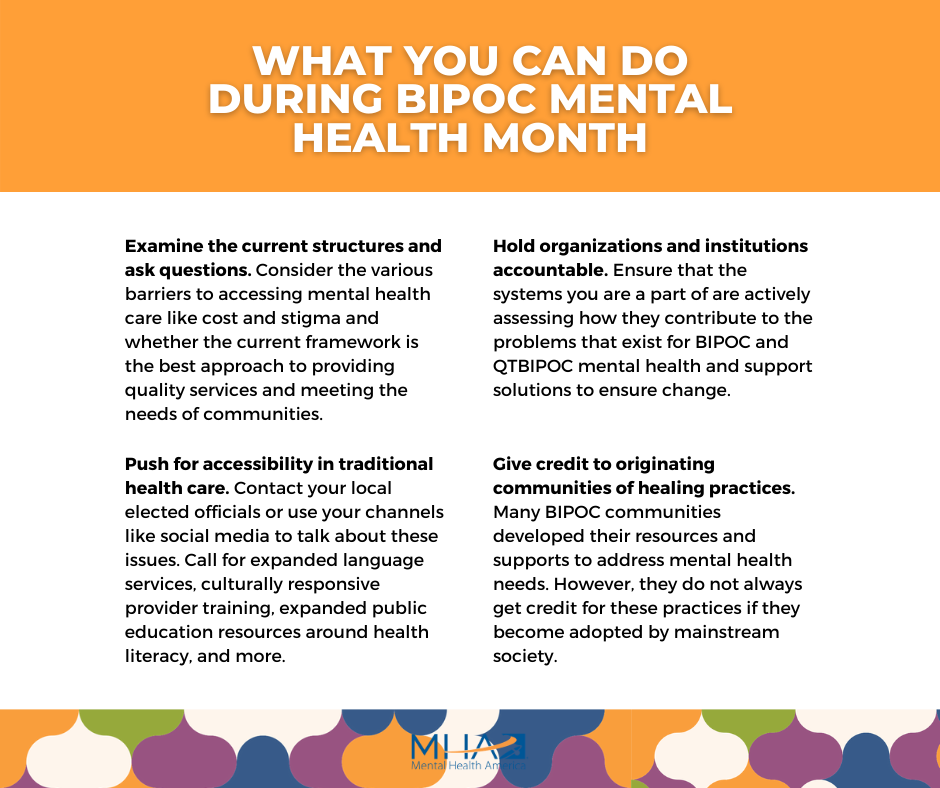July is BIPOC Mental Health Month
Written by SAFEUnderrepresented groups in the U.S. face unique struggles when it comes to mental health. For historically marginalized communities, traditional systems of care may overlook cultural and historical factors that impede BIPOC mental health.
Community care, self-directed care, and culturally-based practices are all valid and valuable choices people can make for their mental health.
Time 2 Rise Rally and Celebration
Far Out Lounge & Stage
8504 S. Congress Ave, Austin, TX, 78745
Start Time: July 25 at 5 p.m. CST
Presented by the D. Wood Foundation and SIMS Foundation, the Time 2 Rise Rally & Celebration brings awareness to the importance of mental wellness in all minority communities as well as highlight the importance of suicide prevention.
Entry is donation based.
Mental health social media accounts to follow
Members of SAFE’s Black/African-American Staff Task Force recommend these Instagram accounts for related to BIPOC mental health: BEAM, Therapy for Black girls, Hello Dr. Joy, and Inclusive Therapists.
What you can do during BIPOC Mental Health Month

Image description: A graphic created by Mental Health America. The image is titled: “WHAT YOU CAN DO DURING BIPOC MENTAL HEALTH MONTH.” Content details below.
Examine the current structures and ask questions. Consider the various barriers to accessing mental health care like cost and stigma and whether the current framework is the best approach to providing quality services and meeting the needs of communities.
Push for accessibility in traditional health care. Contact your local elected officials or use your channels like social media to talk about these issues. Call for expanded language services, culturally responsive provider training, expanded public education resources around health literacy, and more.
Hold organizations and institutions accountable. Ensure that the systems you are a part of are actively assessing how they contribute to the problems that exist for BIPOC and QTBIPOC mental health and support solutions to ensure change.
Give credit to originating communities of healing practices. Many BIPOC communities developed their resources and supports to address mental health needs. However, they do not always get credit for theses practices if they become adopted by mainstream society.
Learn more and take action at Mental Health America.